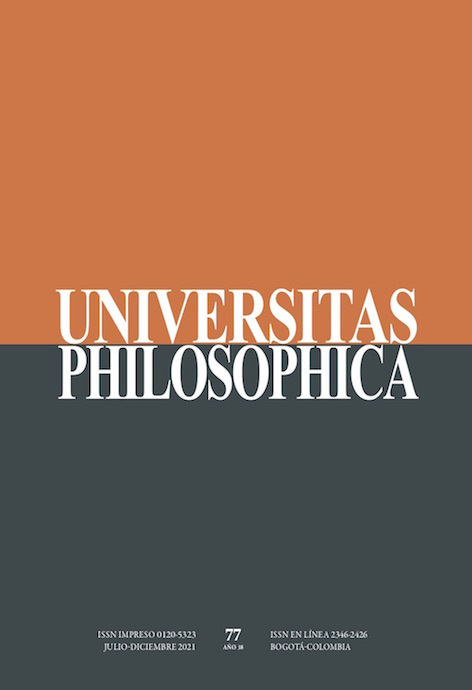Abstract
Freedom has been situated, since Kant, beyond the limits of Reason, a theme that persists until Kierkegaard’s thought. The choice to be free that inaugurates his preoccupation in Either/Or, from 1843, and that was already present in Kant, is highlighted by the imperative need to show that freedom (Friheden) is the properly subjective foundation. As such, it cannot be imposed or demonstrated from the outside, that is, it cannot be applied or shown by any particular science, other than in an instance called ethics (der Ethiske). However, the ethical subjectivity that the Judge develops presents limits, since before the appearance of the concept of sin, the concept of freedom is resignified, giving rise to a new way of conceiving this concept in the later works of the Danish thinker.
Dip. P. (2003). Ética y “límites del lenguaje” en Kierkegaard y Wittgenstein. (Tesis doctoral). Buenos Aires, Facultad de Filosofía y Letras de la Universidad de Buenos Aires.
Dip, P. (2005). La paradoja del análisis conceptual del cristianismo en El concepto de la angustia. Enfoques, xvii(2), 123-148.
Dip, P. (2016). Judge William: The Limits of the Ethical. En K. Nun y J. Stewart (Eds.). Kierkegaard’s Pseudonyms. Kierkegaard Research: Sources, Reception and Resources, vol. 17 (pp. 177-192). Routledge.
Fremstedal, R. (2011). The Concept of the Highest Good in Kierkegaard and Kant. International Journal for Philosophy of Religion, 69, 155-171. https://doi.org/10.1007/s11153-010-9238-5
Grön, A. (1998). La ética de la repetición. Enrahonar, 29 , 35-45.
Kant, I. (1983). Fundamentación de la metafísica de las costumbres. Espasa-Calpe.
Kant, I. (1994). La metafísica de las costumbres. Tecnos.
Kant, I. (1995). La religión dentro de los límites de la mera razón. Alianza.
Kant, I. (2014). Antropología en sentido pragmático. Fondo de Cultura Económica.
Kierkegaard, S. (2006). O lo uno o lo otro. Un agmento de vida I. Trotta.
Kierkegaard, S. (2007). O lo uno o lo otro. Un agmento de vida II. Trotta.
Kierkegaard, S. (2008a). La enfermedad mortal. Trotta.
Kierkegaard, S. (2008b). Post Scriptum no científico y definitivo a “Migajas filosóficas”. Universidad Iberoamericana.
Kierkegaard, S. (2013). El concepto de angustia. Vol 4/2. Trotta.
Lacan, J. (1984). De la psicosis paranoica en sus relaciones con la personalidad. Editorial Siglo XXI.
Madore, J. (2011). Difficult Freedom and Radical Evil in Kant. Continuum.
Rodríguez, Y. (2017). Kierkegaard y Kant: una ética de sí mismo. En P. Dip y P. U. Rodríguez (Comps.), Origen y significado de la filosofía poshegeliana (pp. 113-140). Editorial Gorla.
Rodríguez, Y. (2021a). Pensar los fundamentos de la elección ética: la constitución de la personalidad en Kierkegaard y Kant. Horizontes filosóficos. Revista de Filosofía, Humanidades y Ciencias Sociales, 10 , 57-76.
Rodríguez, Y. (2021b). El antecedente kantiano del concepto de elección de la personalidad en el pensamiento de Kierkegaard. En N. Mendes (Org.), Kierkegaard a través do tempo (pp. 71-96). LiberArs Ltda.
Torralba, F. (1998). Poética de la libertad. Lectura de Kierkegaard. Caparrós Editores.

This work is licensed under a Creative Commons Attribution 4.0 International License.
Copyright (c) 2021 Yésica Rosa Rodríguez


